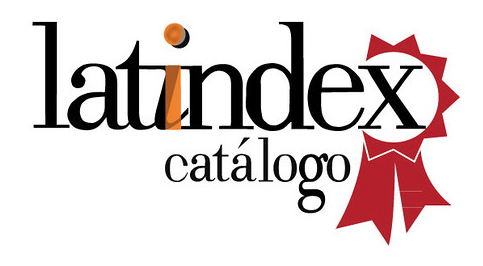Education for sustainable development in building higher studies
DOI:
https://doi.org/10.20868/abe.2021.2.4720Keywords:
Learning, Innovation teaching, Architecture, ConstructionAbstract
Abstract
UNESCO highlights the crucial role of higher education in achieving each of the 17 SDGs (Sustainable Development Goals). Thus, students should acquire the knowledge and skills needed to promote sustainable development. In this context, the University of the Basque Country (UPV/EHU) has developed the Campus Bizia Lab programme as an initiative derived from the Project Erasmus University Educators for Sustainable Development. The aim of the initiative has been to promote a collaborative process between academic staff, service and administrative staff and students, creating a transdisciplinary community to respond to sustainability challenges within the university. In the framework of the programme, pedagogical approaches for sustainable development have been developed for the Grades of Technical Architecture and Civil Engineering at the University of the Basque Country, UPV/EHU. The paper presents the methodologies developed and analyses the effect on learning process
Downloads
References
UNESCO (2018). Education for sustainable development (ESD) beyond 2019. 204 EX/28, Paris.
S. Sterling, “Chapter 5 - Higher education, sustainability, and the role of systematic learning” in Higher Education and the Challenge of Sustainability: Problematics, Promise and practice (Peter Blaze Corcoran & Arjen E.J. Wals Eds.), 49-70, Netherlands, 2004.
A. Leicht, J. Heiss, and W. J. Byun in Issues and trends in Education for sustainable Development. Published by the United Nations Educational, Scientific and Cultural Organization, Paris, 2018.
R. Lozano, M. Y. Merrill, K. Sammalisto, K. Ceulemans, and F. J. Lozano, “Connecting Competences and Pedagogical Approaches for
Sustainable Development in Higher Education: A Literature Review and Framework Proposal,” Sustainability, 9, 1889-1904, 2017.
W. Lambrechts, I. Mulá, K. Ceulemans, I. Molderez, and V. Gaeremynnck, “The integration of competences for sustainable development in higher education: an analysis of bachelor programs in management,” Journal of Cleaner Production, 48, 65-73, 2013.
D. Cotton and J. Winter, “It´s not just bits of paper and light bulbs: A review of sustainability pedagogies and their potential for use in higher education” in Sustainability Education: Perspectives and Practice across Higher Education (Jones, P., Selby, D., Sterling, S., Eds.), Earthscan: London, UK; New York, NY, USA, 2010.
M. Murga-Menoyo, “Learning for Sustainable Economy: Teaching of Green Competencies in the University,” Sustainability 6, 2974-2992, 2014.
J. Segalás, D. Ferrer-Balas, and K. F. Mulder, “What do engineering students learn in sustainability courses? The effect of the pedagogical approach,” Journal of Cleaner Production, 18, 275-284, 2010.
E. R. Kahu, C. Stephens, L. Leach, and N. Zepke, “The engagement of mature distance students,” Journal Higher Education Research & Development, 32(5), 791-804, 2013.
W. A. Astin, “Student Involvement: A Developmental Theory for Higher Education,” Journal of College Student Development, 40(5), 518-529, 1999.
J. B. Biggs and K. F. Collis, Evaluating the quality of learning: The SOLO taxonomy (Structure of the Observed Learning Outcome) pp. 23-29. In Academic Press Inc. New York, 1982.
H. S. Barrows, “A taxonomy of problems-based learning methods,” Medical Education, 20(6), 481-486, 1986.
M. Garmendia, J. I. Barragués, K. Zuza, and J. Guisasola, “Faculty development project for Science, Mathematics and Technology teachers on Problem and Project Based Learning methodologies,” Enseñanza de las Ciencias, 32(2), 113-129, 2014.
J. A. Llorens-Molina, “El aprendizaje basado en problemas como estrategia para el cambio metodológico en los trabajos de laboratorio,” Quimica Nova, 994-999, 2010.
B. Marlies, F. Dochy, and K. Struyven, “The effects of different learning environments on students´ motivation for learning and their achievement,” British Journal of Educational Psychology, 484-501, 2013.
S. M. M. Loyens, S. H. Jones, J. Mikkers, and T. van Gog, “Problem-based learning as a facilitator of conceptual change,” Learning and Instruction, 38, 34-42, 2015.
Yepez-Salmon, “Construction d’un outil d’évaluation environnementale des écoquartiers: vers une méthode systémique de mise en oeuvre de la ville durable,” Universitè Bordeaux, 2011.
M. Lotteau, G. Yepez-Salmon, and N. Salmon, “Environmental assessment of sustainable neighborhood projects through NEST, a decision support tool for early stage urban planning,” Procedia Engineering, 115, 69–76, 2015.
F. Zamora-Polo and J. Sánchez-Martín, “Teaching for a better world. Sustainability and sustainable development goals in the construction of a change-maker university,” Sustainablity, 11(15), 4224, 2019.
Downloads
Published
Issue
Section
License
ABE (Advances in Building Education / Innovación Educativa en Edificación) does not charge authors for processing or publishing an article and provides immediate Open Access to its content. All content is available free of charge to the user or his institution. Users are permitted to read, download, copy, distribute, print, search or link to the full text of articles, or use them for any other lawful purpose, without prior permission from the publisher or author. This is in accordance with the BOAI definition of open access.
- Authors retain the copyright and grant to the journal the right to a Creative Commons attribution / Non-Commercial / Non-Derivative 4.0 International (CC BY NC ND) License that allows others to share the work with an acknowledgement of authorship and non-commercial use.
- Authors may separately establish additional agreements for the non-exclusive distribution of the version of the work published in the journal (for example, placing it in an institutional repository or publishing it in a book).
Unless otherwise indicated, all contents of the electronic edition are distributed under a Creative Commons license.














